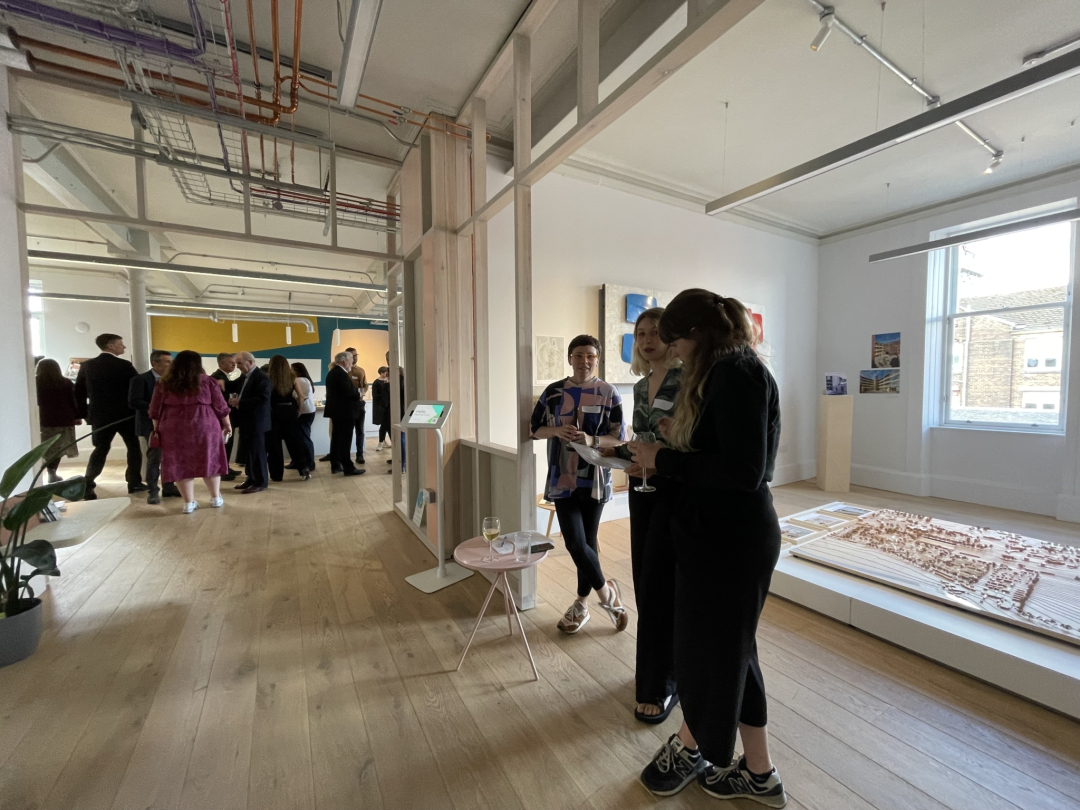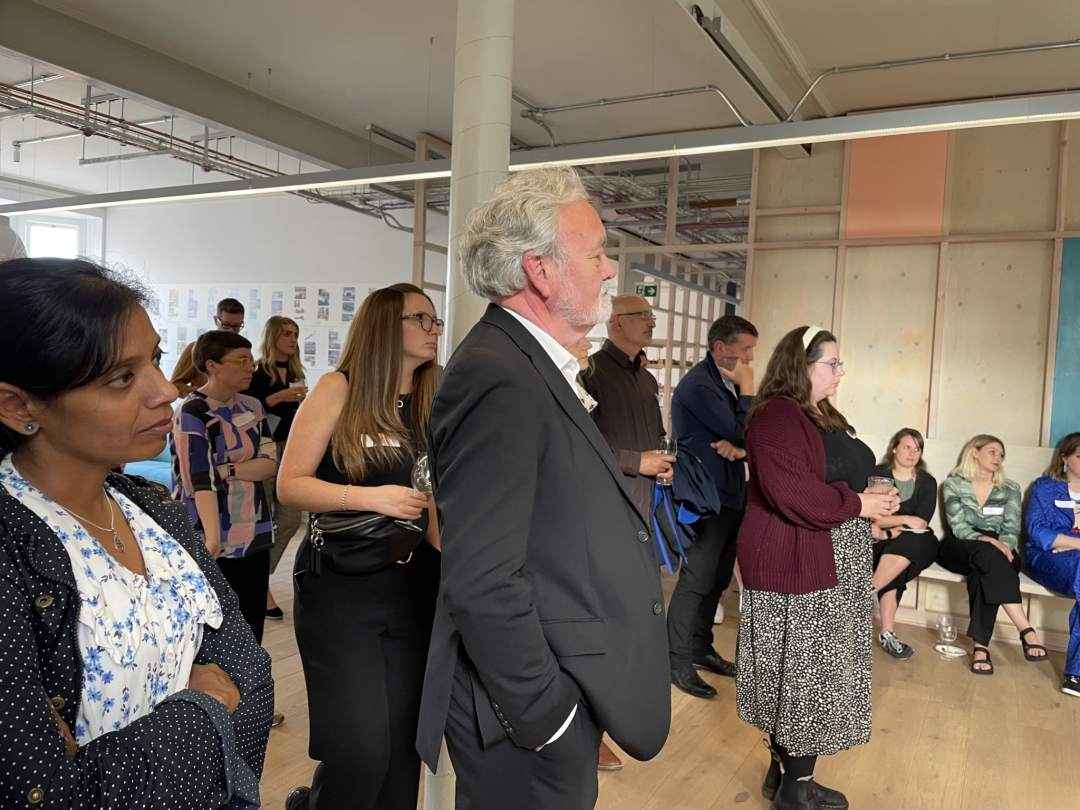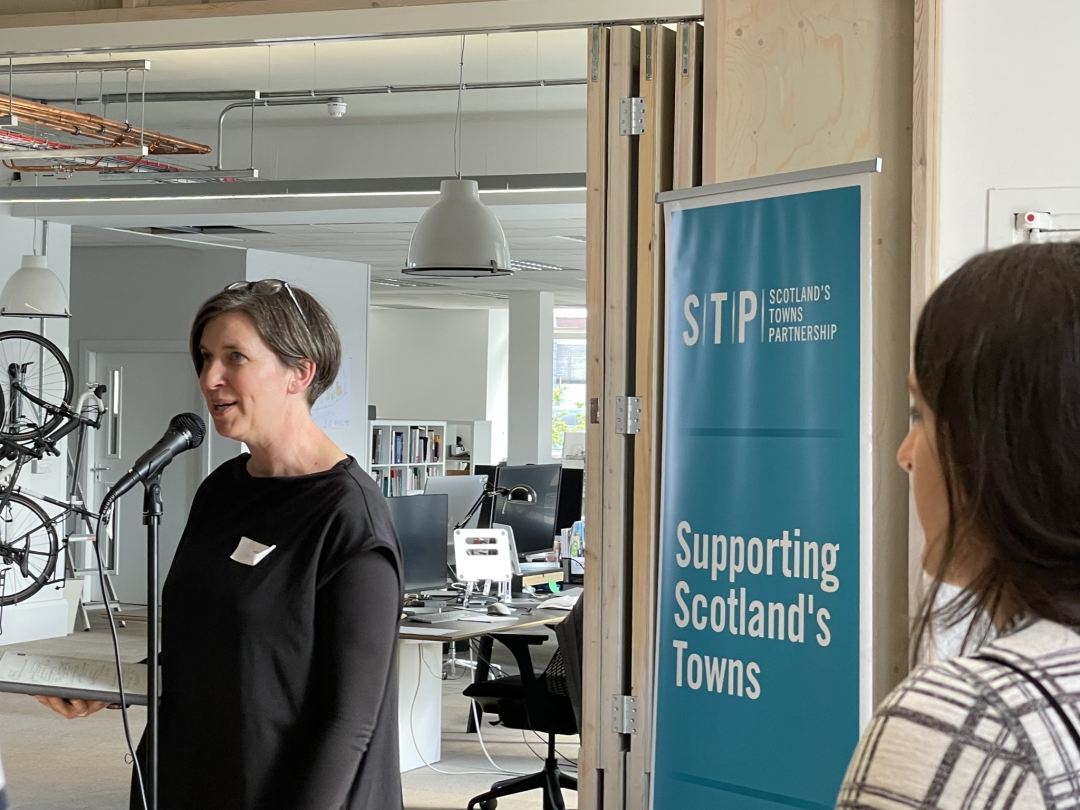Making Places Event & Exhibition with National Planning Framework 4 (NPF4)
14 Jul 2023
What we need is progress, not perfection”. A neat summary to a stimulating evening, considering the aims and implications of the Scottish Government’s new National Planning Framework 4.
An event hosted by Collective Architecture
Chaired by
Jude Barber
Speakers:
Sam Cassells (Place Principle Advisor at the Scottish Government)
Susanne Sharif (Collective Architecture)
Liane Bauer (The Landscape Institute)
Carolyn Rollo (Chartered Institute of Highways and Transportation)
Chris Stewart (President of the RIAS)
The term ‘masterplan’ has been a difficult one to shake from our lexicon. Seldom used with any attempt to marginalise, but the roots of a less equitable society are clearly visible, suggesting the dominance of a single idea, when our experience tells us that the best plans – for a building, a street or a city – are no more than a starting-point for a morphology that will continue to evolve with the people who use it. It is a vestige of our compulsion to extend and emphasise, when the foundational principle will do.
Planning noun: the process of deciding how land in a particular area will be used and designing plans for it.
We do not need a definitive vision of what individual places can (or should) become, rather we need designers who will approach the task of planning with empathy and care, to first see what a place is, before attempting to manifest what it can become. This is how we have always worked, intuitively, as facilitator rather than absolutist, which is perhaps why the narrative around NPF4 resonates with our practice ethos as a mechanism for positive change.
With speakers coming from four distinct corners of the debate – government, architecture, landscape and transport – we saw a reassuring level of consensus, balanced with some healthy disagreement and respectful provocation. Universal was the view that a failure in planning is generally a failure to respond sensitively, being driven more by economic and infrastructural concerns which, as important as they are, leave out the most critical ingredient in the success of any place: people. And nature – more on that later.
Sam Cassells, the Place Principle advisor at the Scottish Government, was the first to take the floor, setting the tone for the evening with an emphasis on inclusion and the importance of ‘being seen’. Planning as a process of listening, talking, and telling stories and placemaking as an exchange of ideas, not an abstract concept. Where development is necessary, it must be in the image of the citizens and communities it means to serve.
Our own Susanne Sharif described an intuitively people-centred approach for the Ladyfield project, in Dumfries and Galloway, taking some of the principles of NPF4 onboard before it was formally adopted as Government policy. The design team pushed for active participation with the local people, embracing the positive and negative feedback that comes with that, to produce a resilient development strategy for the site, underpinned by long-term thinking and ambition, rooted in the site’s rich history. The process was far from universally positive, demanding continuous adaptation and forensic reflection, but the results speak for themselves. And that positive relationship continues, with an innovative client in the Crichton Trust and the Borders as a place of quiet creativity.
Liane Bauer stripped back the layers even further, to consider on a more elemental level the inherent value of a site not as buildings or infrastructure or communities, but as the ecology it already supports. A challenging position perhaps, but only because it stands contrary to the generally accepted narrative of economic growth, development and the pre-eminence of human intervention.
If we can nurture these biodiverse assets as the very foundation of our world, giving primacy if not agency to the flora and fauna that we all take for granted (whilst entire species are routinely extinguished), then the rest will fall into place. She argues for biodiversity before liveability, not because the latter is unimportant, but because it does not exist without the former.
Such was the strategy of the Welsh Government when they scrapped all major road schemes, committing only to new projects that reduce carbon emissions, responding to the urgency of an accumulation of crises with deliberate, decisive action. Carolyn Rollo relates this kind of bold statement as an antidote to what she calls ‘concept planning’, the phenomena of the 20-minute city being one such theory that abstracts the human experience into a catchy phrase, easily packaged and replicated. A sound principle, but problematic if not wielded carefully, and communicated clearly, particularly to those outside our professional ‘bubble’. Her point speaks to the subtle difference between being a beneficiary of Planning (with a capital ‘P’) or being a victim of it.
Four distinct approaches then, but with a common thread and a shared desire to do it better (just as well, because we must lean on one another for any hope of success). And so it falls to our resident President of the RIAS to deliver the last word, reaching across the room with characteristic diplomacy. If an aspiration of NPF4 is to bring people together, then our governing body (with the support of its members) must work to connect disparate policies in pursuit of this goal, sharing knowledge and driving toward the metaphorical cliff edge and the point at which we must all take flight, with total commitment. No safety net and no salvation for half-measures.
Zoe Holliday of Community Energy Scotland neatly captured the mood of the closing discussion with her incisive epilogue: “Progress, not perfection”.



